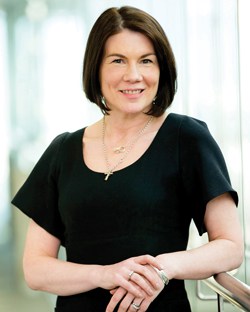For a small island, Ireland packs a punch in the global knowledge economy and has gained much attention for its growing start-up scene, writes Eavann Murphy.
The ease of doing business, an entrepreneur visa programme, the presence of technology multinationals, the growing significance of high-profile global events such as Web Summit and a top talent pool, all combine to create a thriving community for start-ups. A key factor for any early-stage start-up is support, both financial and general business advice. And Ireland’s start-up scene is nothing if not supportive. From incubators, accelerators, competitions and funding programmes, there are numerous options for those who may have a great idea or product, but need help bringing it to fruition.
The Government has recognised the importance of the country’s start-up environment, and has set up several funding and support initiatives designed to give that much-needed boost to those entrepreneurs with a spark. Through Enterprise Ireland, it operates the New Frontiers programme and the Competitive Feasibility Fund which are aimed at those just starting out. For companies at the seed stage of investment, the Competitive Start Fund and the High Potential Start-up Unit (HPSU) are designed to support companies with the potential to succeed in the global market.
Incubators play an important role in the early lives of many start-ups. There are 35 business incubators in Ireland, among them is NDRC, which was recently named among the top incubators in the world by UBI Global. As well as providing seed money, these incubator programmes typically offer valuable mentoring, practical workshops, access to talent and access to potential investors.
Universities and third-level institutions are a melting pot of talent and ideas, and many technology start-ups will spring to life from a kernel of an idea borne of a meeting of like-minded students or through the acquisition of knowledge.
Most of the third-level institutions offer start-up development programmes. The most recent success story is mobile tech company FeedHenry, which was bought for €63.5m by US global software firm Red Hat. FeedHenry was founded by entrepreneur Cathal McGloin and was spun out of Waterford Institute of Technology.
A standout characteristic of Ireland’s start-up scene is the community spirit and the supportive nature of successful Irish entrepreneurs and companies, as well as the large multinationals with bases here. From Google and Microsoft, to Dell and SAP, several large multinationals have created start-up funds, accelerator programmes and start-up competitions all designed to encourage and support entrepreneurs and start-up companies at a very early stage in their development.
We at eircom Business Solutions are keen to play our part in the development of Ireland’s start-ups. With over 80,000 SME customers, we have a unique insight into the needs of SMEs, from those early-stage start-ups to more established companies. Through initiatives like eircom Spiders digital workshops, competitions like Digital Boost and accelerator programmes like Lab 353, we are providing advice, support, mentoring and funding to start-ups and small businesses.

Eavann Murphy, eircom Business Solutions
All of these funds, programmes and competitions combine to create a vital support system for Irish start-ups. And there’s a clear indication that it’s working. In 2014, Irish companies raised €400.8m from investors, a significant increase from the €284.9m raised in 2013, according to IVCA VenturePulse.
We’re doing so much right. We need to keep that momentum going and focus on the next stage of the start-up journey, helping these companies to scale and create successful products or services that are exported around the world.
As a provider of vital communications infrastructure, we’re proud to have an impactful role in the success of businesses looking to scale nationally and internationally. Not only do we have the products to help start-ups take advantage of technological developments in data communications and mobile, our decades of experience is also a key resource that companies can tap into as they look to the future.







